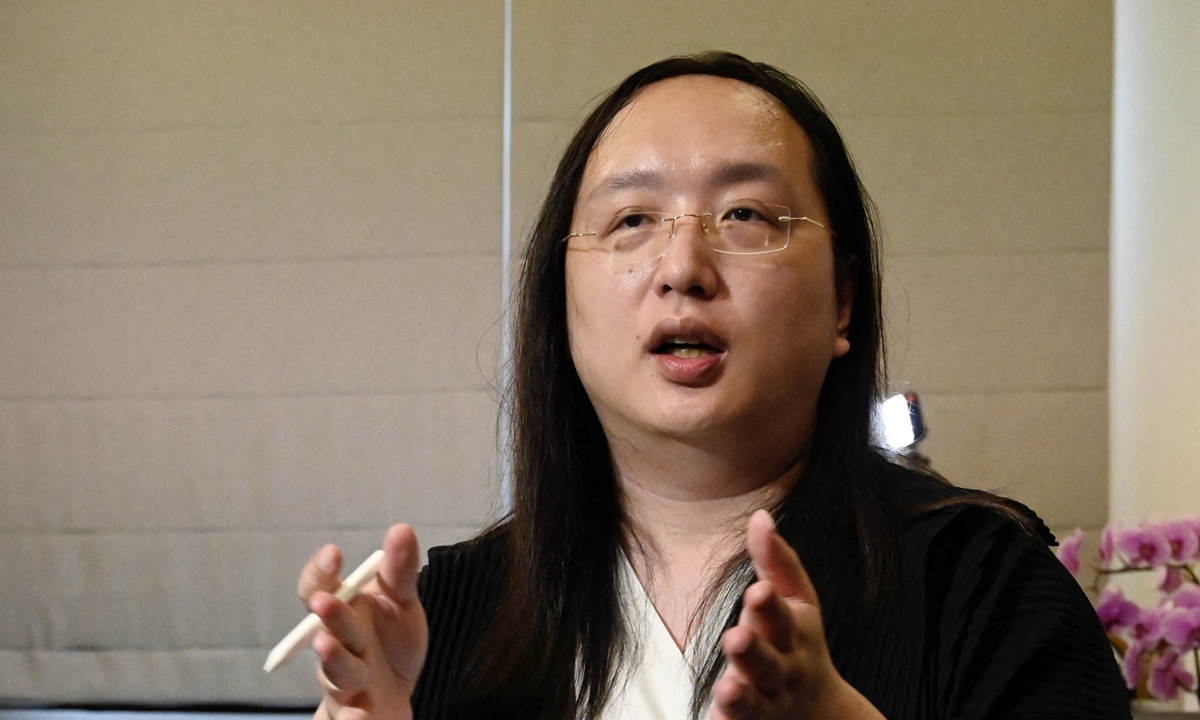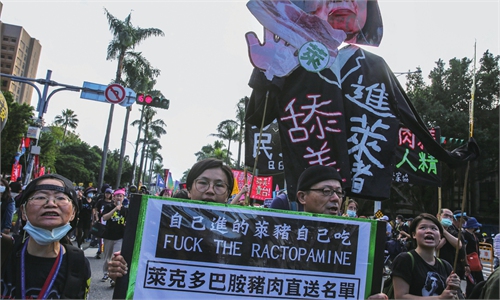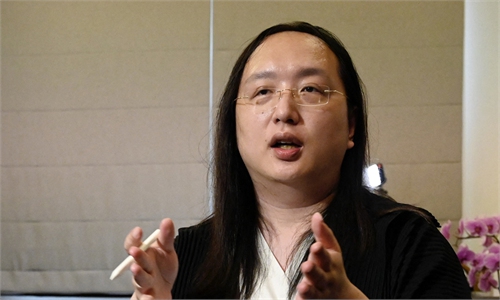'Like a virus' - Taiwan pro-secessionist 'minister' disinvited from S.Korean conference after being snubbed by White House

Audrey Tang Feng Photo: AFP
Taiwan secessionists were once again snubbed and isolated by South Korea as Seoul decided to cancel a Taiwan official's speech during a high-level conference last week.
Although Taiwan's "external affairs authority" on Monday summoned the acting South Korean representative on the island to express dissatisfaction, experts said South Korea made the right decision to mind China's redline, injecting impetus to warming Beijing-Seoul ties.
The South Korean foreign ministry further explained on Tuesday that Seoul's basic position on maintaining unofficial exchanges with Taiwan remains unchanged.
Taiwan's "digital minister" Audrey Tang was invited for a video speech at the South Korean government's Fourth Global Policy Conference on the Fourth Industrial Revolution last week. However, the committee canceled her speech hours before the meeting, as "various aspects of cross-Straits issues" were taken into consideration, Taiwan media reported.
The "external affairs authority" of Taiwan on Monday described South Korea's outspoken move as "disrespectful."
The committee of the Fourth Industrial Revolution was established in 2017 under the guidance of South Korean President Moon Jae-in. Its main responsibility is to study and coordinate the development of new technologies such as artificial intelligence (AI) and data.
The snub came after Tang's secessionist provocation at the US-held "summit for democracy" on December 12, in which the US cut the video feed of Tang after a map in Tang's slide presentation showed the island in a different color to the Chinese mainland.
Analysts said Tang's clumsy stunt has discredited Taiwan's secessionist authority, and South Korea cannot bear a possible repetition at its high-profile conference, which may affect its relations with Beijing.
Seoul's move is not surprising, considering the US precedent not so long ago, Lü Chao, an expert on the Korean Peninsula issue at the Liaoning Academy of Social Sciences, told the Global Times on Tuesday.
The one-China principle is a universal consensus of the international community. Taiwan secessionists should know they are viewed by others as "virus," Lü said.
As the 30th anniversary of the establishment of China-South Korea diplomatic ties approaches in 2022, bilateral ties have entered a more mature stage, Lü said.
South Korean President Moon Jae-in ruled out joining the US-led "diplomatic boycott" of the 2022 Beijing Winter Olympics.
Despite twists and turns in recent years, Beijing-Seoul ties have warmed up steadily. Chinese State Councilor and Foreign Minister Wang Yi visited South Korea in September and met with South Korean President Moon Jae-in, and they agreed to promote bilateral ties and strengthen cooperation.
China has been South Korea's largest trading partner for 17 consecutive years, 2021 data shows. The Regional Comprehensive Economic Partnership (RCEP) agreement which will begin on January 1, 2022 will further integrate Northeast Asia through free trade, analysts said.
Unlike Japan, the joint announcement after the US-South Korea "2+2" meeting in March 2021 did not directly mentioned China and the Taiwan question.
Seoul's rational attitude of not taking sides between China and the US is in line with its national conditions and can be understood and recognized by China, Lü said. "Both China and South Korea need to avoid US elements that may upset bilateral relations, which are particularly important to regional stability and development."



